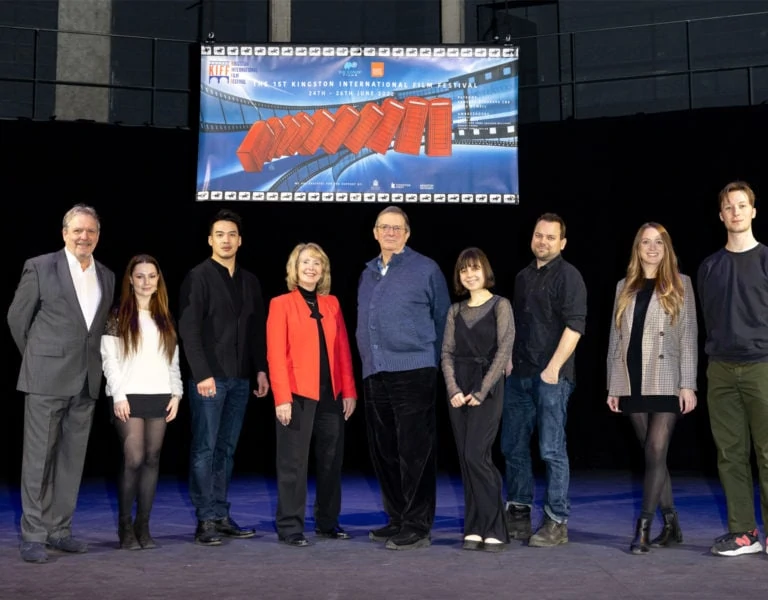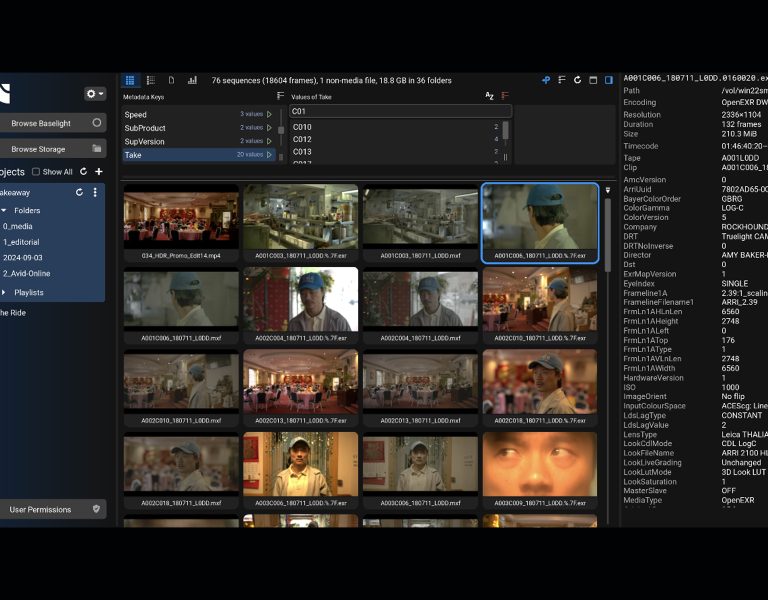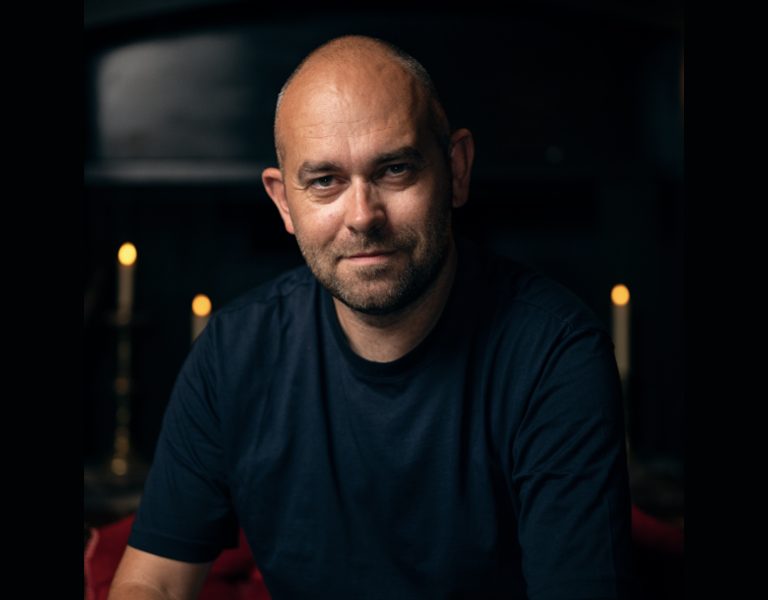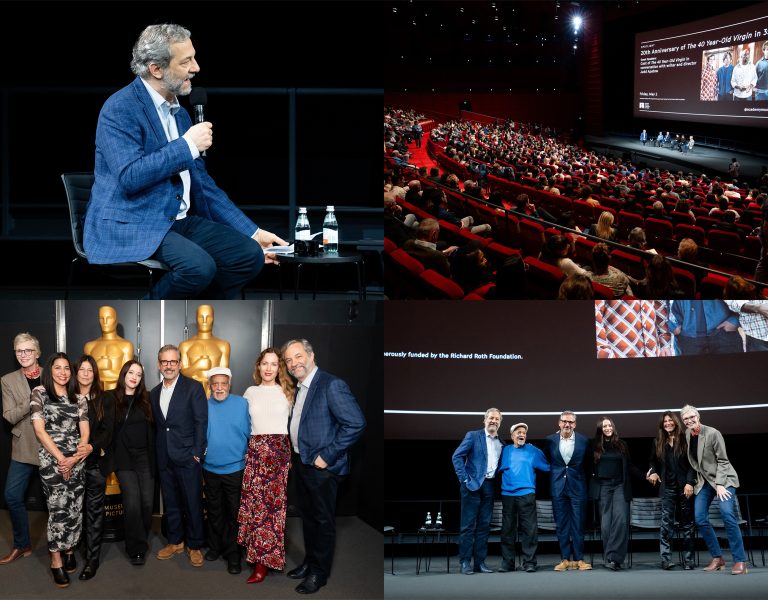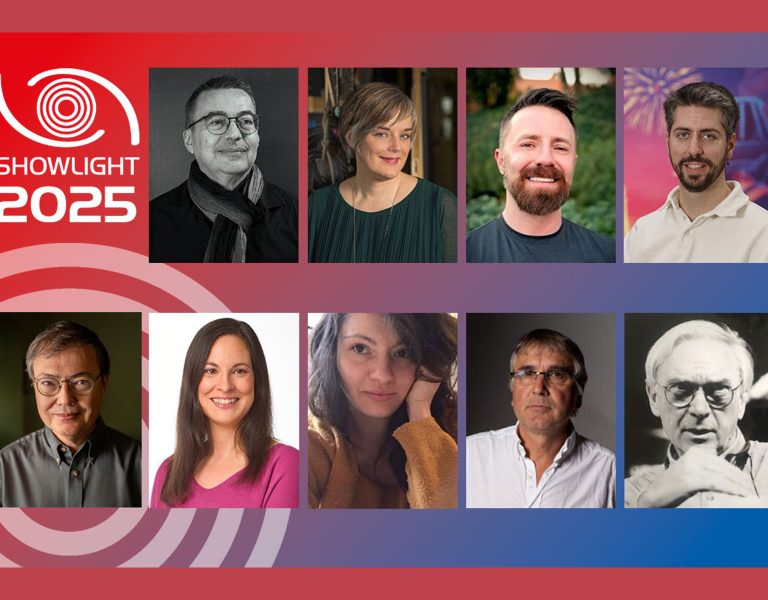
Independent Film Trust co-CEO Tolu Stedford on making a stand for marginalised groups and improving mental health in the film and TV industry
“As a Black woman sitting in my seat, I do not just represent Black women: I have to represent everyone else who is not in the room. If I really want to be inclusive, it’s my duty to think, how can I open up the doors to as many people as possible who aren’t currently represented?”
Making the film and TV industry as accessible as possible is the lifeblood of the Independent Film Trust (IFT) and its co-CEO, the film producer Tolu Stedford, is as passionate as anyone about the cause. Founded in 2004, the charity focuses on training, mentorship, and research to support underrepresented filmmaking talents – which is how Stedford came on board. In 2020 she joined the IFT’s successful Talent Led mentoring programme, moving to its development department in 2021. For the Londoner, it’s the culmination of over 30 years’ experience in the entertainment industry and a journey that hasn’t always been so smooth.
“I started out in the industry very young, at the Royal National Theatre’s Young Theatre Company,” Stedford says. “My mum saw an advert for it on Carlton TV – so that shows you how long ago it was! Being from an underprivileged background, I was very lucky to be in such a prestigious and enriching learning space. It was all completely life-changing for me, for somebody of my background.”
She remembers being the only Black girl on the programme “for a very long time”, and one of the few actors from a disadvantaged background. That said, the experiences that she took from it were transformative, acting in Chekhov plays, learning circus skills, and performing at The Old Vic.
Having a child later in her teens, with her now-husband of 25 years, put the brakes on Stedford’s acting plans for a while. After a foray into investment banking (“completely miserable!”), she realised she missed the thrill of being on stage, so joined a beginners’ acting class at City Academy. “The principal, Jake Lyons – who is instrumental in where I am now – said to me, ‘I think you’ve got enough talent to see you into this industry’,” she recalls. And, inspired by his words, she went on to join Identity Drama School as an adult.
When Stedford finished her training, she became part of their agency. “I was out in the industry, doing work – brilliant,” she says. “Now, can I have some roles, please? Roles that don’t stereotype me into two or three boxes, like being a mum? I’ve got such complex narratives that I want to explore, and I want to see people who I know in my community that I just don’t get to see on screen. So, I started writing my own productions and started a production company with a couple of friends. We called ourselves the Creative Lions because we knew the most important thing was to be fierce!”
It was this work that led to Stedford’s flourishing union with the IFT two years ago. In her new role, working along fellow CEO Charlotte Knowles, she campaigns for rights and provides tangible feedback to the industry to help them support marginalised groups. So, what does an average day in her life at the IFT look like?
“The honest answer is – knackering!” she says with a laugh. “But powerfully enriching. No one day is the same at the IFT, and I think that’s because of the way we approach our talent. We respond to need and what we feel is the current challenge – we’re very reactive. Whether it’s our Power Talks series, which speaks directly to the industry, or our talent development, meeting talent from entry all the way to professional level, there is a broad range of things that we’re doing to engage, develop, consult, and challenge.”
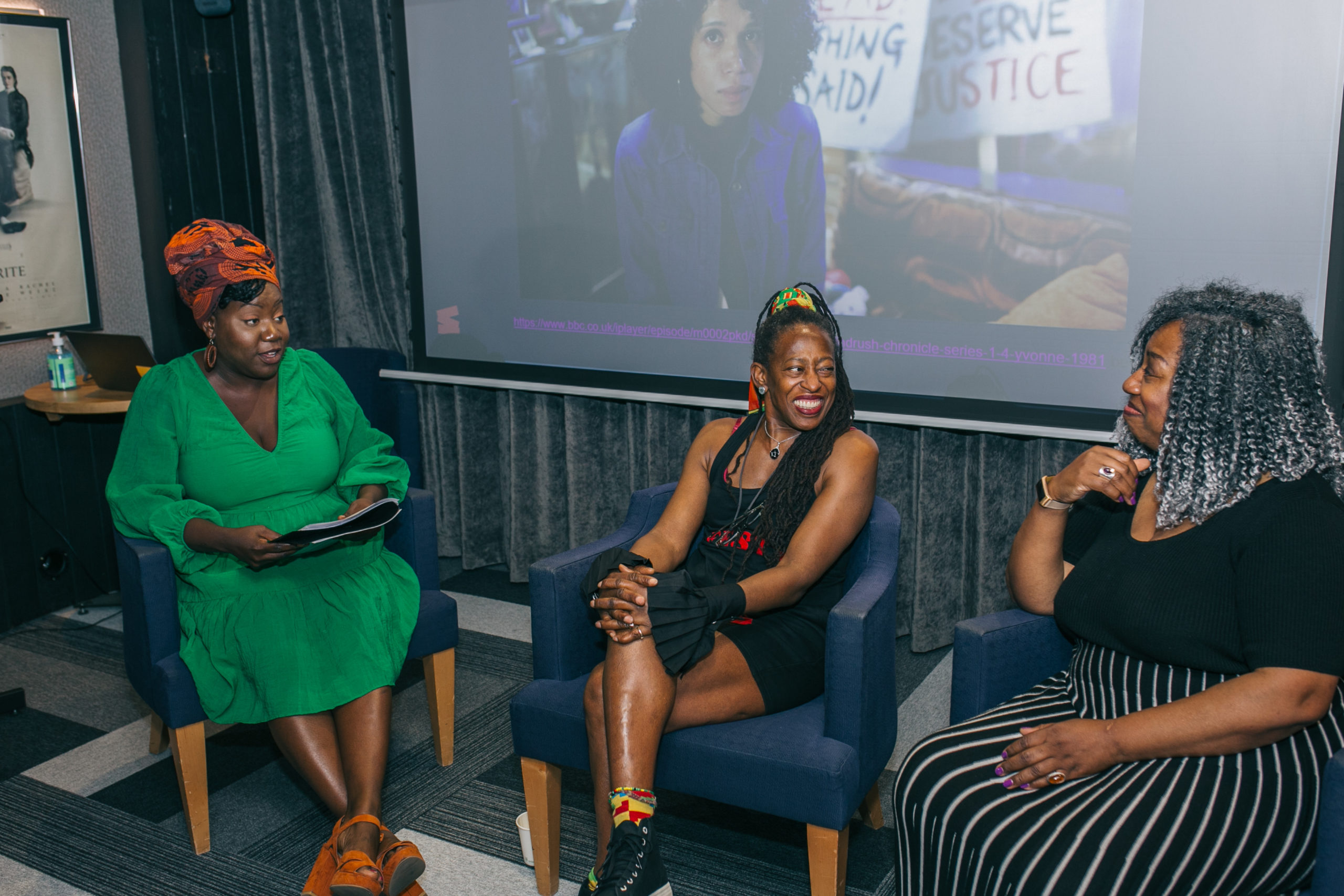
Power to the people
The IFT’s Power Talks series saw its second event on 22 June – Windrush Day, commemorating the Windrush Generation’s immense impact on British society and culture. Special guest speakers, the actor Judith Jacob and screenwriter Juliet Gilkes Romero, entertained and empowered guests with their interview responses as they discussed the power of comedy in challenging stereotypes and how the media landscape should be shifted to better look after marginalised groups.
“The whole point of the Power Talks is to dissect different challenges the industry faces when opening the doors and also servicing the industry through a talent pipeline, innovation and making the UK remain the leaders in the entertainment industry,” Stedford explains. There are plans for future Power Talks on neurodiversity, the LGBTQ community (to be held in LA), hidden racial identities, and focusing on the UK’s regional divide.
With her decades-long career in the industry, Stedford has seen a tide change when it comes to representation, but as we all know, there is plenty of work left to do. “The inclusivity of content on film and TV is so much superseded from what I was exposed to as a child,” she says, “and that is something to be celebrated. We have made strides in that area of representation, but the more I’m in this industry, the more I understand that the work now is behind the camera. It’s also in the people who have the decision-making powers; this is key to where a real inclusive society lies.
“Now, I think the industry is much more receptive to [inclusivity] and willing to take the chances – the problem is, they don’t always know how, because they don’t always have the people on their teams to help nurture that process. But even when it is happening, we’re still getting reports from the Film & TV Charity that there is still racism and discrimination on set. And in this day and age, it’s frightening to think this is happening.”
Stedford quotes a damning statistic from the Film and TV Charity’s 2021 Looking Glass Survey, which examined mental health and wellbeing in the industry. The report found that 39% of Black, Asian and minority ethnic respondents had experienced racial harassment or discrimination in 2021, with most saying that it had negatively affected their mental health. Anyone who works behind the scenes in film, TV and cinema is encouraged to share their experiences in the 2022 survey, open now.
Going more online during the COVID-19 pandemic had done some good in opening doors for people who wouldn’t normally be in the industry, Stedford noted, and a change in perspectives prompted by the Black Lives Matter movement was seeing more change for the better. “I think the appetite – especially following George Floyd – is for more content that is real and inclusive of the society that we’re living in,” she adds. “There is a move from commissioners to look at what our homegrown narratives are, particularly for us and our British identities, and that British identity involves lots of different cultures that are still developing in cohesively living together. And when we talk about diversity, especially at the IFT, we don’t want it to be all negative. We think it’s important for us to celebrate how far we’ve come so that we can galvanise that energy to push us forward even more because we should never stop trying to think about who’s not in the room.”
Mental health in the industry is another topic that has dominated headlines in recent years, especially in the aftermath of the pandemic. “There are a lot of changing parts that are happening within our industry, like US investment coming over to the UK, which is changing the infrastructure of what Britain looks like,” Stedford says. “That means now we’re coming out of the pandemic, we’ve hit the road running but we haven’t really taken a breath to look at what happened to us individually or as an industry at that time, because we needed to keep the motion going.”
She cites two key resources: one being an upcoming toolkit that IFT is producing with the BFI that she hopes every production house will have. Another is the Film and TV Charity: “I think they’re fantastic but not enough people know about it – especially those who need it most. We put our Power Talks event on at the Film and TV Charity to put more attention on their work and the support they provide, as well as the research they conduct, because we all know that data is the most important commodity regarding evidence.”
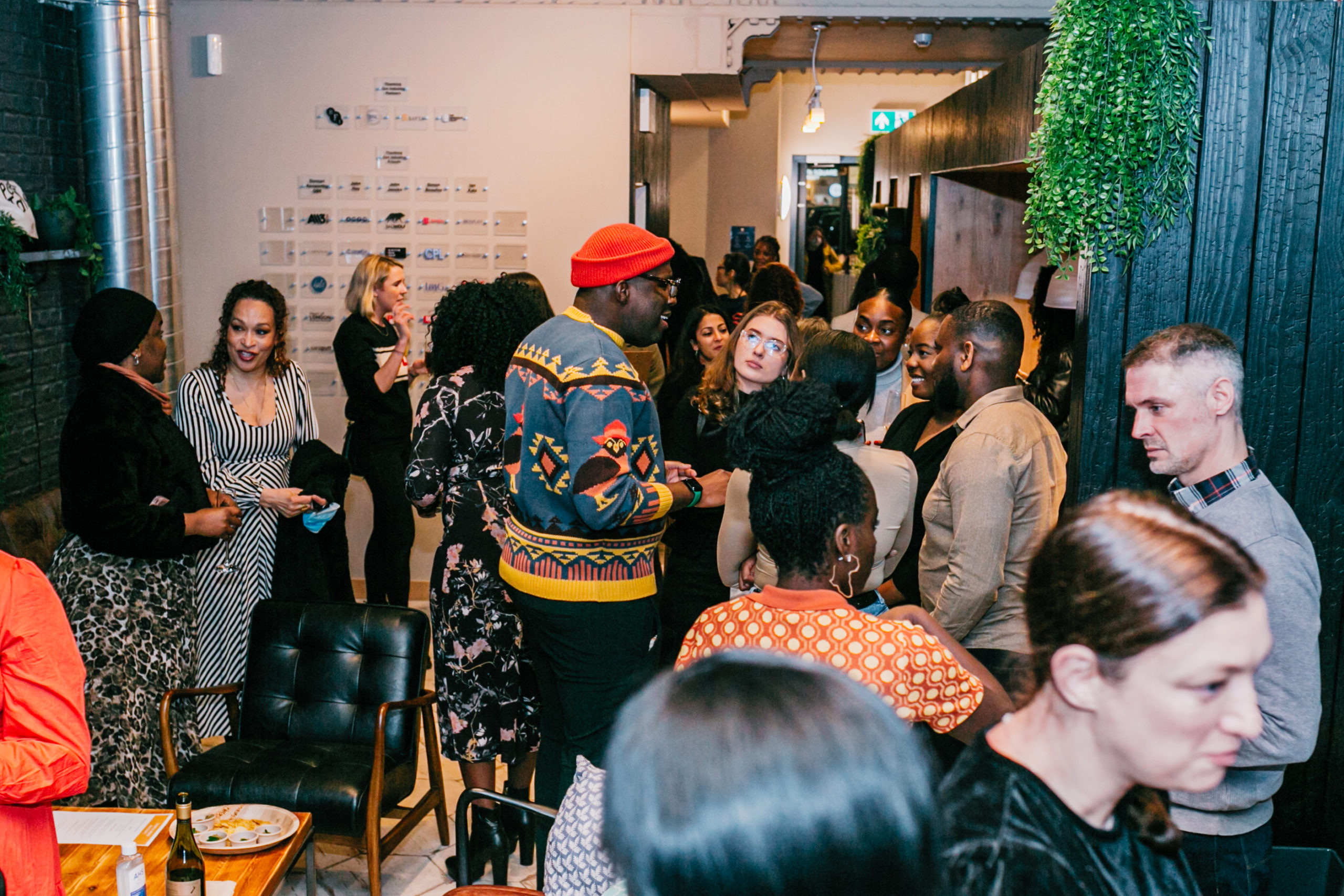
Giving back
Looking to the future, the IFT has just launched IFT Studios, giving its talent space to create commercially successful content. Moreover, the IFT is a key proponent of mentorships in the industry. It has two key programmes: Talent-Led, which was Stedford’s own introduction to the IFT, and Creative Corridor. Talent-Led is aimed at writers, directors, and producers, but not teaching them those skills but rather professional skills, as Stedford explains: “It’s about understanding themselves as a business – understanding their personal brand, finding their authenticity and ways to have sustainable careers, and connecting them to the right people.” This year, it has introduced a scheme for 16-25-year-olds, Talent Led: Next Generation, which launched this June. Stedford has spearheaded the Creative Corridor scheme which gives five writers of colour from the UK and five from the US an insight into the pitching process of both territories and the workings of international co-productions. Mentees from both programmes can access the IFT’s membership scheme (there’s a free and a pro version) which provides £2,700 worth of discounts.
The IFT’s mentorship schemes are popular as the team draws on its own lived experiences to provide the ultimate support package. Stedford says: “We understand at the IFT that it’s about the approach. Understanding imposter syndrome – what does it feel like when you’re the only person of colour in the room? How do you overcome that and still find your authentic voice?”
She remembers a recent industry event at London’s swanky Savoy Hotel. “I turned up in my bright yellow jumpsuit and it was full of white, middle-aged men of a certain stature. I had this crushing feeling, like ‘Oh my God, what have I just stepped into…’. I bustled my way to my seat and sat down and had to say to myself: I’ve got two options here – sit down and be quiet, and hope that nobody notices me because this is very scary. Or do I be confident in knowing that my lived experience is just as essential to this conversation as anybody else’s in this room? In fact, it might be even more relevant because there is nobody else giving it. And that is the power we’re trying to give people who are still breaking new ground: their footsteps are really important and valued in this industry.”
And with the help of the IFT and its fellow charities, it’s hoped the next generation of talented crew are in safe hands, whatever barriers they may face.
Keep up-to-date with the latest Power Talks and the IFT’s work on their website.
Words: Helen Parkinson
